Reasons For Bhutan Being Exclusive From Rest Of The World
May 20, 2019 • 7 views
Situated among the mighty mountains of Himalayas on the eastern edge,
Bhutan is an enchanting country. A Buddhist kingdom landlocked from all
sides, Bhutan is known for its monasteries, dzongs and dramatic landscapes
that range from subtropical plains to steep mountains and valleys. It is a great
Himalayan kingdom shrouded in mystery and magic where a traditional
Buddhist culture carefully embraces global rise and development.
With a harmonious population of below a million, Bhutan stands out from the
rest and the for it are as follows.
1. One and only nation in the world to project its development in terms of “Gross national happiness.”
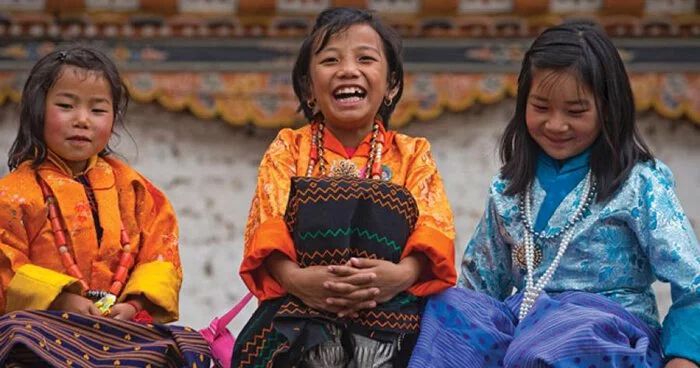
Gross National Happiness is the philosophy that guides the government of
Bhutan. It includes an index which is used to measure the collective happiness
and well-being of a population. Since 1971 onwards Bhutan has stopped
relying on Gross Domestic Product as the only means of estimating national
growth and development.
2. Not even carbon neutral, the only carbon negative country in the
world.

Barely visible on the map, Bhutan is the first country in the world to gain
official recognition of being the carbon negative country. The nation produces
1.5 million tonnes carbon every year but absorbs six million tonnes of carbon
per year. Practices such as planting trees in abundance and using electric
vehicles made it possible for a small nation like Bhutan.
3. Committed to conservation, Bhutan preserves 60 percent of its
land under forest cover.
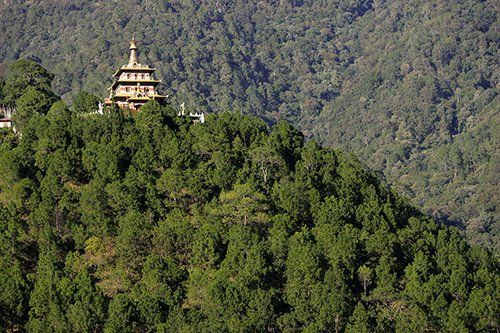
Conservation of environment is one of the pillars of Bhutan’s national
development. As mandated in the constitution, Bhutan preserves 60% of its
land under forest cover. As per the reports, at present 71% area is under
forests. Most of it is intact forests interwoven with free flowing rivers.
4. National dress code during work hours.
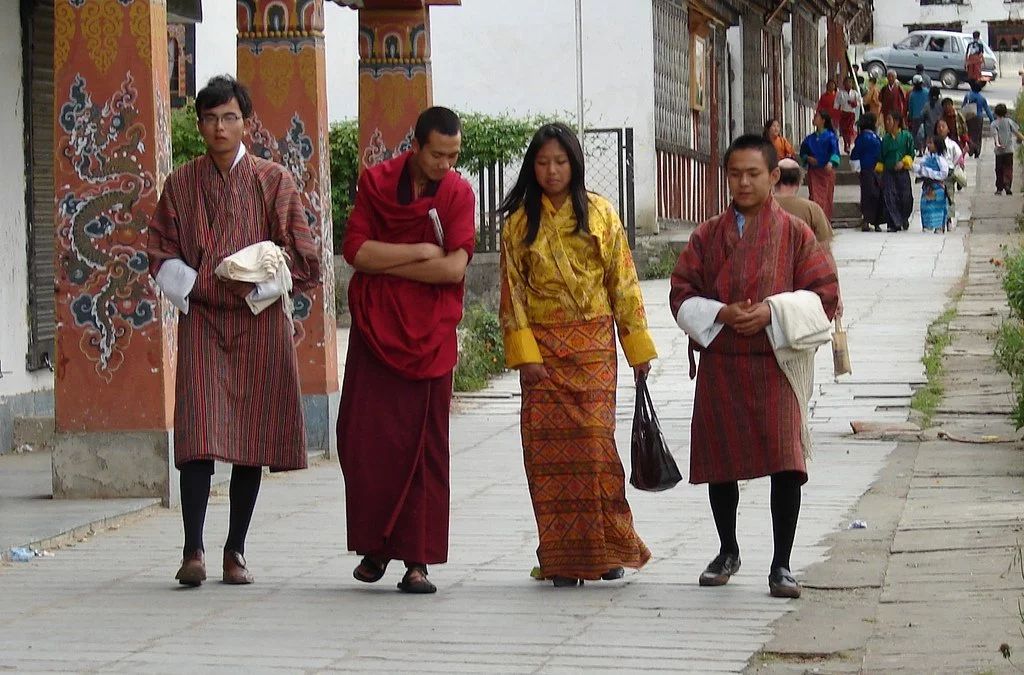
Gho is the national dress of men in Bhutan and Kira is national dress for
women. Gho is a long robe whereas Kira looks like an apron. All Bhutanese
citizens are required to observe the national dress code know as Driglam
Namzha while in public during daylight hours. The law is said to be an effort to
preserve and promote Bhutan’s cultural heritage.
5. No traffic lights and manually controlled traffic.
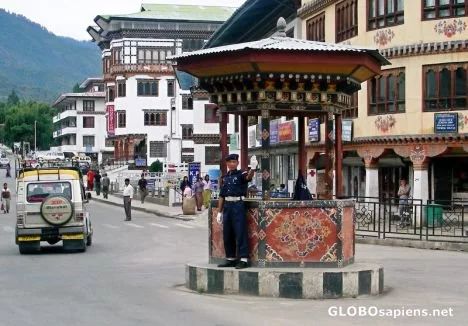
Bhutan is the only country in the world to have no traffic lights. Instead
policemen stand at major intersections and direct traffic. Initially traffic lights
were installed but then quickly removed because people preferred the
policemen. There is only one traffic signal in Thimpu and that too is controlled
by hand signals.
6. A country having no railway lines.
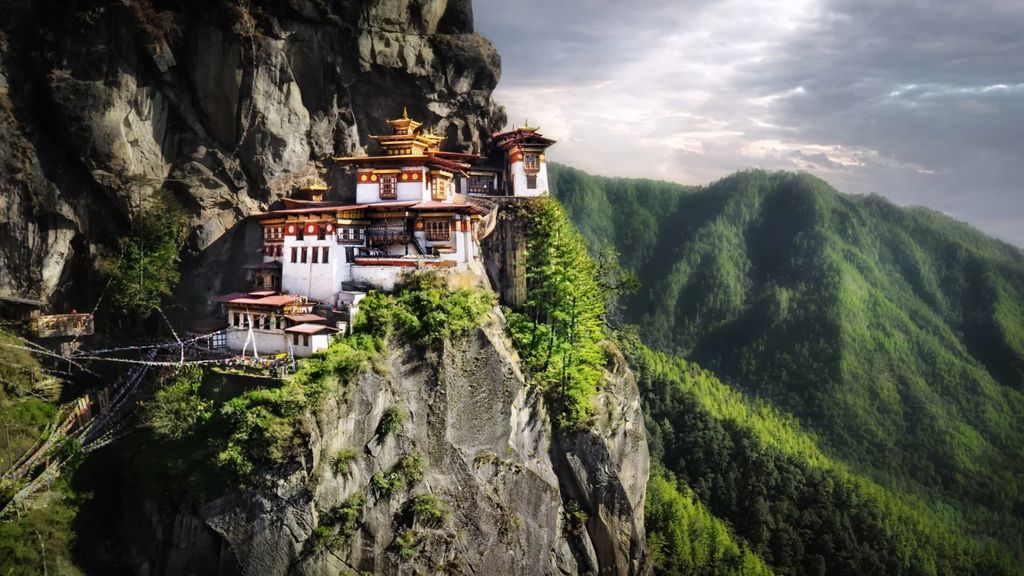
Transport in Bhutan uses 8000 kilometres of roads and three airports. Unlike
India Bhutan has no rail transport because the cost of laying railway lines in
such rough terrains would be really expensive. Although India has signed a
memorandum with Bhutan to connect it with Indian Rail Networks.
7. Priests, Nuns and religious leaders cannot contest elections or
vote in Bhutan.
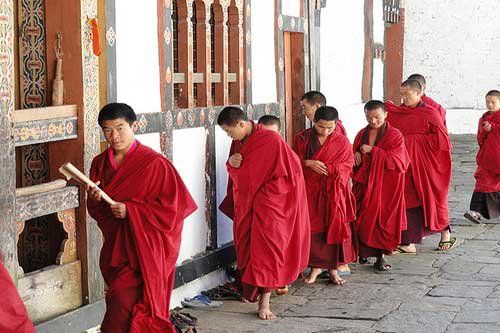
The country made a shift from absolute monarchy to absolute monarchy in
2008. Bhutan’s constitution requires that religious personalities abstain from
partaking in elections, electoral campaigning, voting in order to separate religion from politics.
8. Bhutan has no Navy and Air Force.
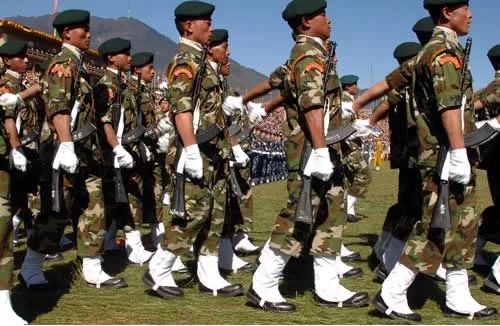
Being a landlocked country Bhutan has no Navy and additionally has no Air
force. India is responsible for military training, arm supplies and the air defence
of Bhutan.
9. No to Plastics since 20 years.
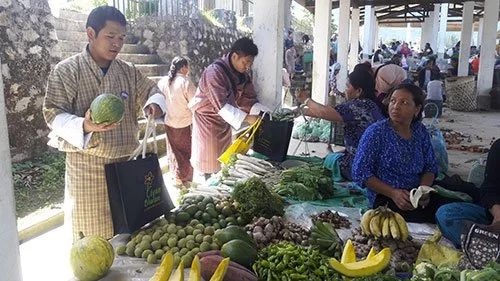
It has been twenty years since Bhutan banned the use and sale of plastic bags
and doma wrappers. The ban was reinforced on 1 April 1999. The ban has being reinstated again this year.
10. Smoking banned in Public Places.
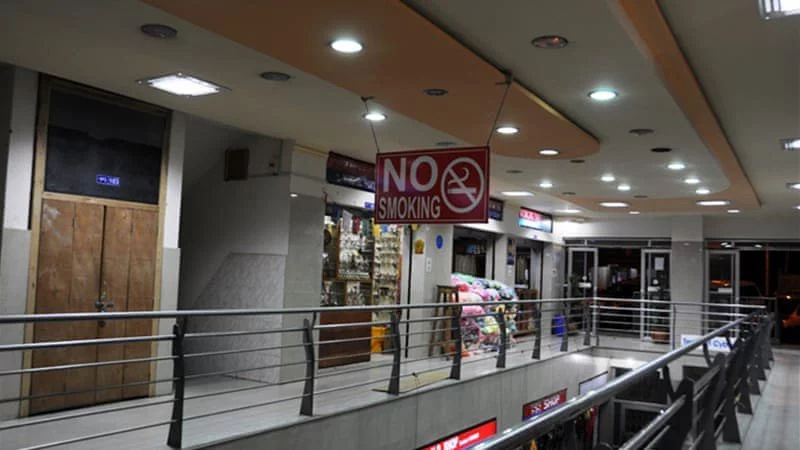
Bhutan was one of the first countries to bring tobacco control into action.
Public smoking and consumption of tobacco is strictly banned and if found
guilty, heavy penalty is levied upon.
11. Sundays have no Newspapers.
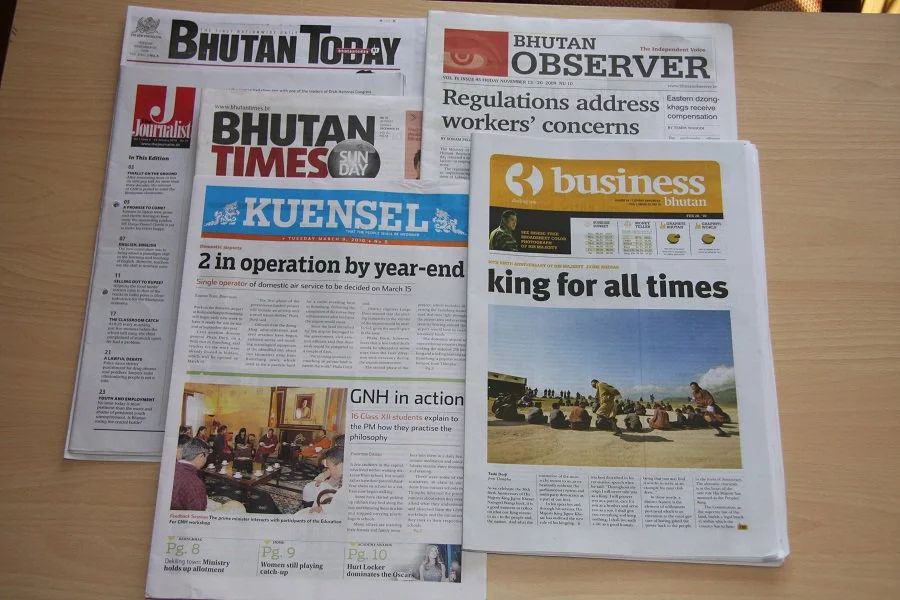
Bhutanese are relaxed as a community and work on fixed hours without any
sense of urgency. Sunday is a complete off so much so that there is not even a
newspaper on Sunday.
12. Tea with Salt.
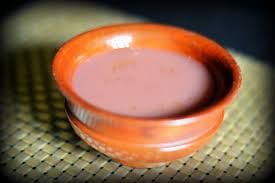
Bhutanese have their tea with salt in it. Called Suja, Bhutanese love its taste.
